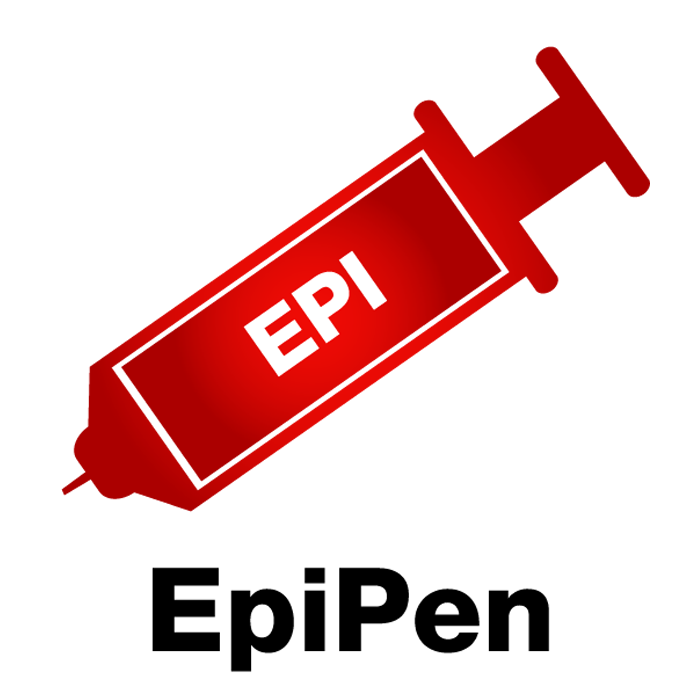Epinephrine Auto-Injector Information
State law allows physicians to prescribe epinephrine auto-injectors to businesses and the general public after completion of proper training and certification. The epinephrine certification card issued by the EMSA allows an individual (lay-person or off-duty EMS personnel,) to obtain a prescription for and administer an epinephrine auto-injector to a person experiencing anaphylaxis, with civil liability protection.
BLS Providers and EMS Personnel: Contact your Local EMSA with questions regarding Epinephrine use in your jurisdiction.
Interested in becoming an approved training program? Visit our Epinephrine Auto Injector Training Programs page.
EPINEPHRINE CERTIFICATION REQUIREMENTS
Epinephrine Certification Application: Please disregard epinephrine certification application instructions and read Epinephrine Application Instructions.
For those wishing to obtain an Epinephrine Certification, please review these steps:
1. Using these instructions, Epinephrine Application Instructions [PDF], submit the following:
● An Epi Certification Application [PDF]
● Proof of completion of CPR and First Aid for Adults, Children and Infants
● Proof of completion of an EMSA-Approved Epinephrine Training Program
● Check or money order in the amount of $15.00, made out to “Specialized First Aid Fund”
2. EMSA staff have 30 calendar days to process your payment and review your application.
3. Within 30 days of receipt, EMSA staff will either:
● Approve your application,
OR
● Send a deficiency letter, notifying you of any missing items you must submit to complete your application.
4. Once your application is complete and approved, EMSA will mail you an approval letter and certification card, which includes the dates of your certification cycle.
5. Once approved, you may also view your certification information in the Central Registry public look-up.
For those wishing to renew an Epinephrine Certification, please review these steps:
1. Using these instructions, Epinephrine Application Instructions [PDF], submit the following:
● An Epi Certification Application [PDF]
● Proof of completion of CPR and First Aid for Adults, Children and Infants
● Proof of completion of an EMSA-Approved Epinephrine Training Program
● Check or money order in the amount of $15.00, made out to “Specialized First Aid Fund”
2. EMSA staff have 30 calendar days to process your payment and review your application.
3. Within 30 days of receipt, EMSA staff will either:
● Approve your renewal,
OR
● Send a deficiency letter, notifying you of any missing items you must submit to complete your renewal.
4. Once your application is complete and approved, EMSA will mail you a renewal letter and certification card, which includes the new dates of your certification cycle.
5. Once renewed, you may also view your certification information in the Central Registry public look-up.
FREQUENTLY ASKED QUESTIONS
See Health & Safety Code 1797.197(g) : This section does not apply to a school district or county office of education, or its personnel, that provides and utilizes epinephrine auto-injectors to provide emergency medical aid pursuant to Section 49414 of the Education Code.
You may obtain the training, become certified, and obtain a prescription for Epipen auto-injectors, however, the certification does not extend to include elementary or high school campuses.
Are off-duty EMS personnel considered “lay rescuers” under the law when off-duty?
FREQUENTLY ASKED QUESTIONS
-
-
-
- Dates of receipt, use and destruction of each auto-injector dispensed, and
- The name of any person to whom epinephrine was administered by using an auto-injector, and
- The circumstances and manner of disposal of any auto-injectors
-
-
For those entities that possess and make available epinephrine auto-injectors shall do the following, per Health and Safety Code, Section 1797.197(f):
- Create and maintain on its premises an operations plan that includes all of the following:
- The name and contact number for the authorized health care provider who prescribed the epinephrine auto-injector.
- Where and how the epinephrine auto-injector will be stored.
- The names of the designated employees or agents who have completed the required training program and are authorized to administer the epinephrine auto-injectors.
- How and when the epinephrine auto-injector will be inspected for expiration date.
- The process to replace the expired epinephrine auto-injector, including the proper disposal of the expired epinephrine auto-injector or used epinephrine auto-injector in a sharps container.
- Submit to the EMSA a report of each incident that involves the use of epinephrine auto-injector, not more than 30 days after each use.
Find a Training Program Near You!
Find Epinephrine Auto-injector Training and Certification for lay-rescuers and off-duty EMS personnel.
Please contact the programs directly for their course offerings.
The EMSA does not schedule or register participants for classes.
Questions? Contact the Epinephrine Certification Program!
BLS Providers and EMS Personnel: Contact your Local EMSA with questions regarding Epinephrine use in your jurisdiction.
We are located at:


